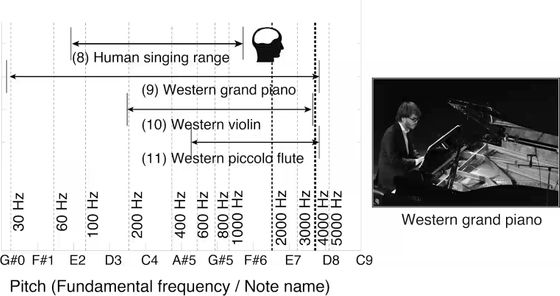Possibility that the myth that 'music is a universal language' was wrong

It is often said that music is a universal language because it is popular across cultures and languages. However, a study of how the sounds of indigenous people in the Amazon back ground have shown that cultural influences can certainly exist in the way that music is heard.
Universal and Non-universal Features of Musical Pitch Perception Revealed by Singing: Current Biology
Perception of musical pitch varies across cultures | Cosmos
https://cosmosmagazine.com/biology/perception-of-musical-pitch-varies-across-cultures
The Chimanes living in the Bolivian rainforests in South America are self-sufficient and isolated from Western culture, and so far have been attracting attention through research to investigate the relationship between lifestyle and health . It was.

Meanwhile, Josh McDermott, who is studying cognitive science at the Massachusetts Institute of Technology, conducted an “experiment to reproduce the sound synthesized by a synthesizer with voice” for the Chimanes and Americans. We found that the musical sensibilities of the Chimanes and Americans have both cultural differences and universality rooted in biological commonality.
McDermott and colleagues first conducted an experiment in which Americans were asked to hear two sounds that were emitted in different ranges, and then reproduced in a voice. Then, American subjects, two of the sound is

The research group believes that this result is related to
A similar experiment was conducted on the Chimane tribe, and it was said that the reproduction was focused on the sound of the sound without being particular about the octave. From this result, Mr. McDermott says, “The octave equivalence is due to the cultural background, and it seems to be irrelevant to those who have not touched Western music based on octaves.”

On the other hand, McDermott has also found commonality across cultures. It is known that most Westerners do not understand the difference in sound when the sound exceeds about 4000Hz, because 'most of the instruments used in Western music such as the piano have set the upper limit of about 4000Hz' It has been said.

However, even though the upper limit of the sounds of musical instruments used by the Chimane people is much lower than 4000 Hz, the Chimane people were able to hear accurately up to about 4000 Hz, like the Westerners, but when it exceeded that, The difference is lost.

About this result, Mr. McDermott stated the reasoning that `` If the sound exceeds 4000 Hz, the reactivity of the neurons in the brain will decrease and it will be difficult to distinguish the difference in sound, '' says He expressed his view that the limits of sound were due to biological rather than cultural limitations.
Related Posts:







